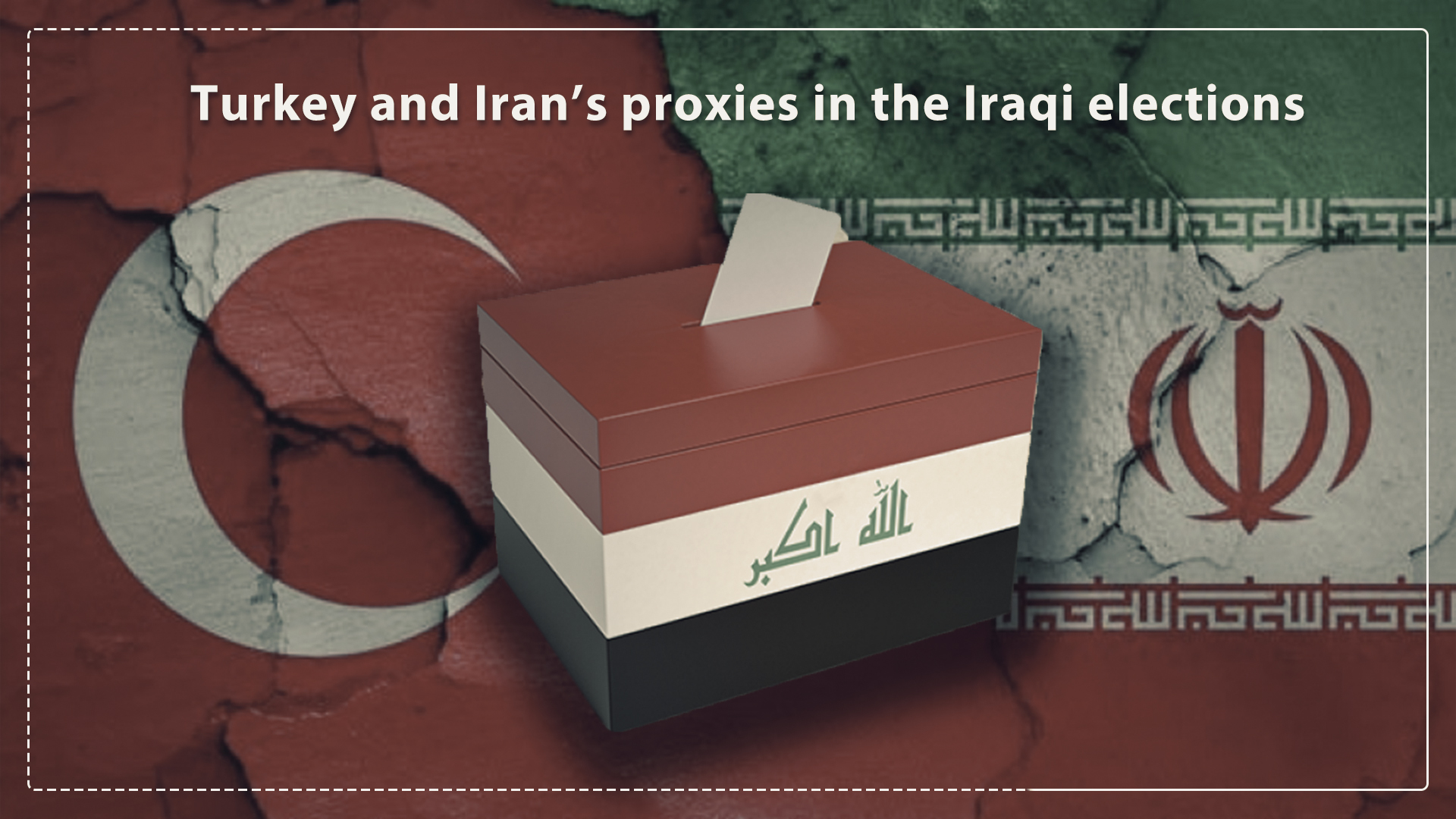Turkey and Iran’s proxies in the Iraqi elections

Over the course of two decades, Iraq has suffered from political instability after the overthrow of the former Baathist regime in 2003. Since that time, Iraq has been going through political destabilization, amid a state of ebb and flow in which the political forces pass through due to the regional interests of the neighboring countries on the one hand and the partisanship and sectarian interests on the other, which are more vulnerable to targeting and exploitation by the neighboring countries.
Undoubtedly, the black box that the West, led by the US, participated in opening in Iraq, “the political instability and the lack of Iraqi sovereignty” paved the way for the emergence of proxies on the ground, which allowed the neighboring countries to form their agents, support them and feed them in line with their strategic interests in the Middle East region. Perhaps the most prominent regional countries that participated in the formation of proxies on the ground was Turkey, which was the main supporter for the Kurdistan Democratic Party (PDK) and the Turkmen groups, and Iran, which formed hundreds of political and military formations and supported the figures loyal to it.
One of the factors that ensures the continuity of neighboring countries’ incursion into Iraqi affairs is the political instability and the failure to reach a consensus formula to form a government of national unity or a national coalition. Perhaps the recent elections in Iraq and the victory of Muqtada al-Sadr’s bloc in the parliamentary elections were not in the interest of Turkey and Iran, which baptized to influence the electoral process in Iraq, where Turkey, through the PDK, managed to exclude all Kurdish political parties, in addition to trying to control the presidency of the Republic, in violation of the agreement between the Kurdish forces on power-sharing in the region and Iraq, and the PDK nominating its candidate for the presidency of Iraq. This step would be an attempt to control the sovereign decision of Iraq.
On the other hand, the recent visit of the commander of the Quds Force, Esmail Qaani to Iraq, raised many questions and doubts after the meeting that brought him together with Shiite leaders who were excluded from the Iraqi elections. Qaani’s visit comes in the context of attempts of restricting any attempt to rapprochement among Shiite entities in the political arena, and an attempt to thwart the initiative that was proposed by the former president of Kurdistan Region of Iraq, Massoud Barzani, to unify the political discourse among currents Shiites in Iraq, since any rapprochement among Shiite blocs in Iraq could open the door to questions about Iranian presence and activity in Iraq.
It is no secret that the political scene in Iraq is very complex, especially after Muqtada al-Sadr’s control of the majority of parliamentary seats, which shuffled the cards of the regional and international agendas in Iraq. On the other hand, the US remained a spectator on the scene without taking any action, which means the continuation of the uncertainty surrounding the political scene of Iraq to an unknown future.




